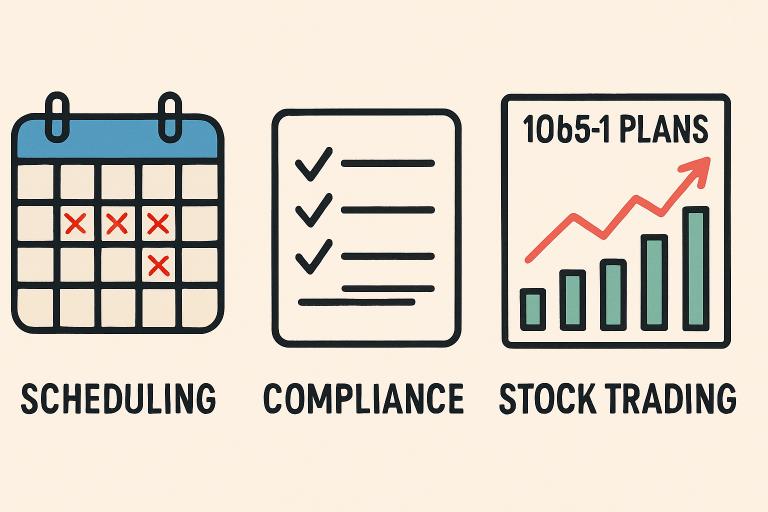Now Reading: What Businesses Gain from Intelligent Revenue Management Systems
-
01
What Businesses Gain from Intelligent Revenue Management Systems
What Businesses Gain from Intelligent Revenue Management Systems

Key Takeaways
- Intelligent RMS integrates AI and analytics to refine pricing and accurately anticipate market trends.
- Businesses benefit from higher revenues, reduced costs, and superior customer satisfaction.
- Industries such as hospitality, healthcare, and manufacturing demonstrate the value of RMS adoption.
In an increasingly data-driven marketplace, businesses are turning to intelligent systems to optimize financial performance and decision-making. Intelligent revenue management systems leverage automation, predictive analytics, and real-time data to empower organizations to forecast demand, refine pricing strategies, and allocate resources effectively. By identifying patterns and trends that human analysis might overlook, these systems enable companies to make proactive, evidence-based decisions that enhance profitability and long-term sustainability. Whether in hospitality, retail, or SaaS industries, revenue optimization has evolved beyond static spreadsheets into a dynamic process that responds to ever-changing market conditions.
The integration of software for revenue management allows businesses to streamline operations and minimize costly errors associated with manual forecasting. These systems can analyze large volumes of transactional data to uncover opportunities for pricing adjustments, customer segmentation, and inventory control. Additionally, intelligent tools promote consistency across departments by centralizing insights, ensuring that marketing, sales, and finance teams work toward shared goals. As technology continues to evolve, data-driven revenue strategies will remain a cornerstone for organizations seeking agility, accuracy, and long-term growth in a competitive economy.
Enhanced Pricing Strategies
Dynamic pricing models are at the heart of intelligent revenue management systems. By harnessing real-time market data, customer behaviors, and competitor pricing, businesses can adjust their rates swiftly in response to changing conditions. This agility enables organizations to capture the highest possible revenue under fluctuating demand scenarios. For example, in the hotel sector, AI-driven RMS analyzes data points such as booking windows, regional events, and historical occupancy to automate optimal room pricing. This level of precision yields notable improvements in both occupancy and profitability, affording businesses a significant competitive advantage over slower-moving rivals.
Outside of the hospitality industry, which has complex supply chains and fluctuating customer demand, such as airlines and retail, have rapidly adopted revenue management technology. These industries rely on granular data analysis to offer the right price at the right moment, ultimately ensuring their resources are utilized at maximum efficiency.
Improved Demand Forecasting
Reliable forecasting allows organizations to plan proactively for market shifts, allocating resources with greater accuracy than ever before. Intelligent RMS utilizes machine learning algorithms to analyze historical data, market signals, and external variables, including weather and economic indicators. This holistic approach provides forecasts that are not only more accurate but also adaptive, continually learning from new information.
Smarter forecasting translates to lower inventory holding costs, fewer lost sales due to stockouts, and improved customer satisfaction. In manufacturing, for example, AI-powered demand forecasting ensures production levels are closely matched to anticipated customer needs, reducing both excess stock and shortages. The ability to fine-tune inventory proves invaluable, especially in industries with thin margins or volatile demand cycles.
Operational Efficiency
Besides optimizing revenue, intelligent RMS plays a transformative role in overall business efficiency. Automated report generation, data collection, and analytics save valuable employee time that would otherwise be spent on manual tasks. This automation not only reduces operational expenses but also eliminates human error—fostering a culture of data-driven decision-making throughout the organization.
Additionally, streamlined workflows enable teams to focus their attention on higher-value tasks, such as strategic planning, customer service, or innovation. Improved efficiency also accelerates response times to market shifts, enabling companies to maintain their competitive edge in a rapidly evolving landscape.
Case Studies
Hospitality
Marriott International’s One Yield RMS exemplifies the power of intelligent systems. Integrating machine learning with real-time data analysis, it dynamically adjusts room prices for both individual and group bookings. Marriott reported revenue per available room (RevPAR) uplifts ranging from 5–10% following the implementation of this technology, along with a noticeable increase in guest satisfaction rates.
Healthcare
Healthcare providers face unique challenges in balancing capacity, resource use, and patient demand. Leading hospitals leverage RMS to predict appointment volumes, optimize staff allocation, and streamline elective procedure scheduling. This approach maximizes both patient care quality and organizational financial health.
Manufacturing
Intelligent RMS systems are also transforming the landscape for manufacturers that need to predict market demand and adjust their production accordingly. Companies using AI-based solutions report notable reductions in inventory costs and improvements in order fulfillment—directly contributing to higher profit margins and better service delivery.
Challenges and Considerations
Despite the powerful advantages of intelligent RMS, organizations need to approach adoption thoughtfully. Ensuring data accuracy and integration with existing tech stacks is critical, as any inconsistencies can undermine system reliability. Up-front investments, ranging from purchasing fees to training and ongoing system maintenance, are also significant considerations. Practical usage further depends on employee training; organizations must invest in ensuring that staff are equipped to leverage the new tools and accurately interpret the resulting insights.
Future Trends
The landscape of revenue management will continue to evolve with the growth of AI and machine learning-based innovation. Real-time decision intelligence platforms are slated to provide increasingly automated insights, recommendations, and personalized customer experiences. Integration with Internet of Things (IoT) devices and external data streams is expected to push the boundaries of predictive analytics, allowing companies to become even more responsive and agile in their revenue strategies.
Conclusion
Intelligent revenue management systems represent a transformative advance for businesses aiming to stay ahead in competitive markets. Through AI-powered pricing, enhanced demand forecasting, and automation, companies can consistently increase profitability, operate more efficiently, and deliver superior customer experiences. As technology matures, the potential for intelligent RMS to drive strategic advantage and sustained growth will become increasingly pronounced, making adoption not just an option but a necessity for forward-thinking organizations.





















